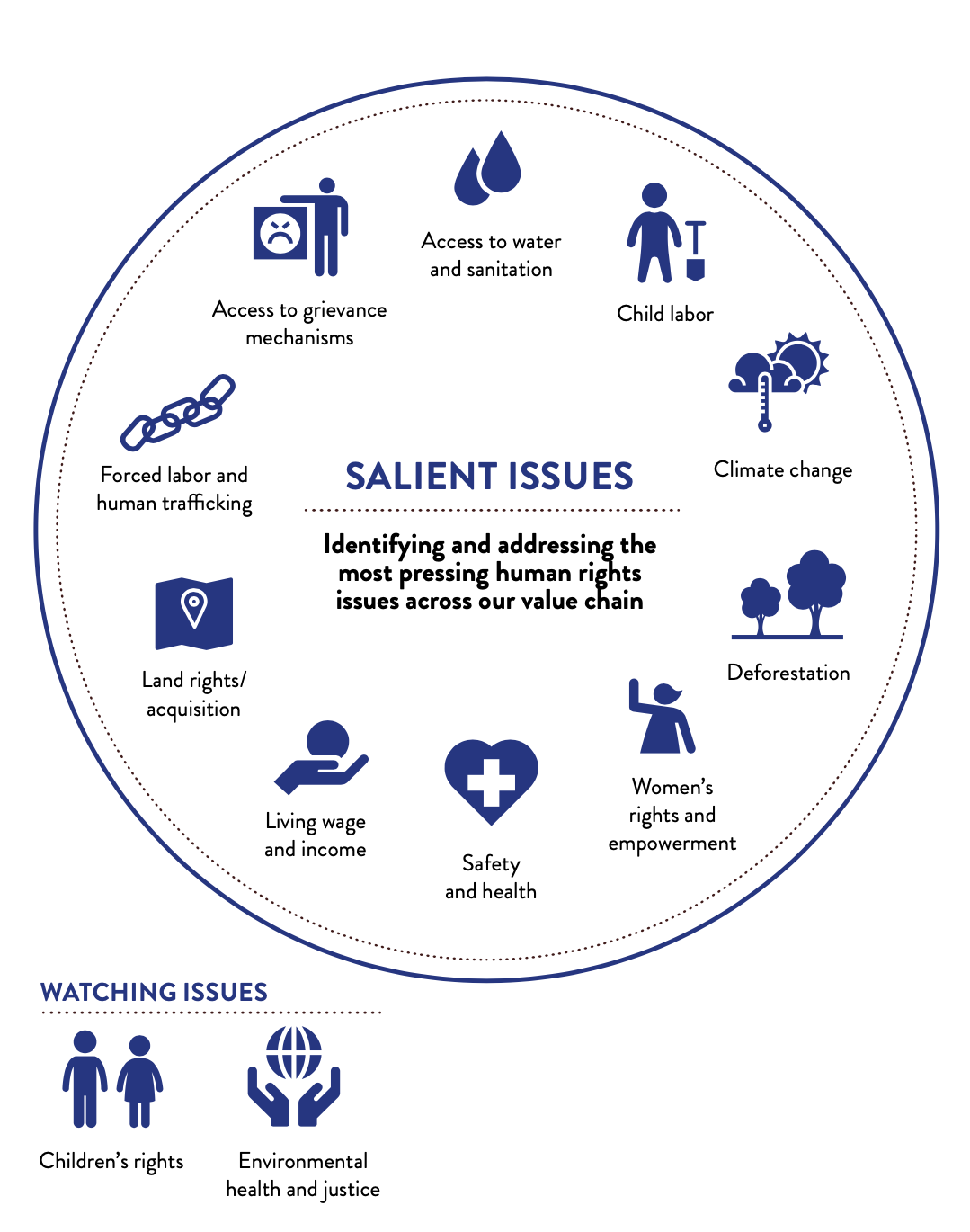Hershey: Embedding Human Rights

Hershey's 2019 Sustainability Report
WHY IT MATTERS
Hershey was founded on the principle of doing well by doing good. For more than 125 years, we have operated our business understanding that we are integral members of the communities where we live and work. The remarkable and diverse people employed by Hershey and the individuals who work along our value chain are some of our most important resources. Guided by an approach that identifies, assesses and prioritizes the most significant human rights risks in our value chain, we use our direct business relationships and leverage to enable all to exercise and enjoy their fundamental human rights.
HOW WE DO IT
In early 2019, we released our first enterprise-wide Human Rights Policy. It is publicly available in six languages on our website and was launched to employees by our CEO at a company-wide town hall. The policy follows the guidance of the United Nations Guiding Principles on Business and Human Rights (UNGPs) and was developed with input from diverse stakeholder groups including Hershey employees, labor organizations, investors, governments, and nonprofit and civil society actors.
During 2019, we also integrated human rights into our learning and development program and new employee orientation. This process included creating an e-learning module that covers the UNGPs, Hershey’s salient human rights issues, high-level considerations for human rights and purchasing practices, and guidance on being an internal champion for human rights. This training is mandatory for all global procurement professionals across Hershey and is strongly encouraged for leaders in functions like manufacturing, legal and human resources, as well as certain commercial functions.
To further inform our human rights actions and approach to human rights due diligence, we also partnered with Verité
on a methodology to identify and assess current and future human rights risks across our key ingredients’ and materials’ value chains and geographic footprint. Using a set of indicators from more than 12 external data sources—including U.S. Departments of State and Labor reports, the UN Multidimensional Poverty Index, UN Migrant stock data, the International Trade Union Confederation (ITUC) Global Rights Index and the UN Gender Inequality Index—we identified risks and opportunities to guide programming over the next few years. As a result of this partnership, we now have a replicable framework for conducting human rights due diligence across our facilities and supplier base.
Read more about our work with Verité here.
Finally, we recognize that addressing human rights issues requires partnership and coordination. Our partnerships with nonprofit organizations and pre-competitive industry collaborations play a critical role in informing our strategies. In 2019, we co-led an AIM-PROGRESS working group focused on identifying strategies for training buyers and procurement professionals on human rights topics. A more comprehensive list of our human rights partnerships and efforts is available here.
